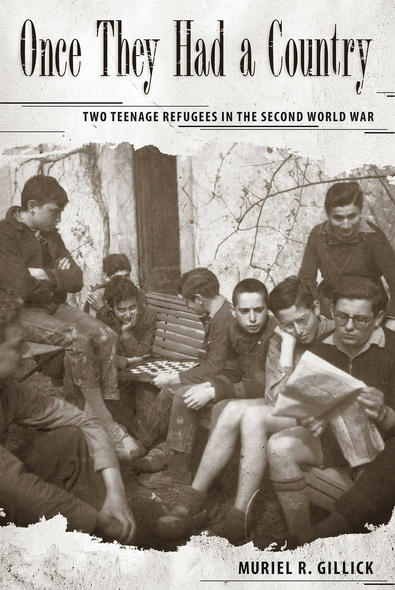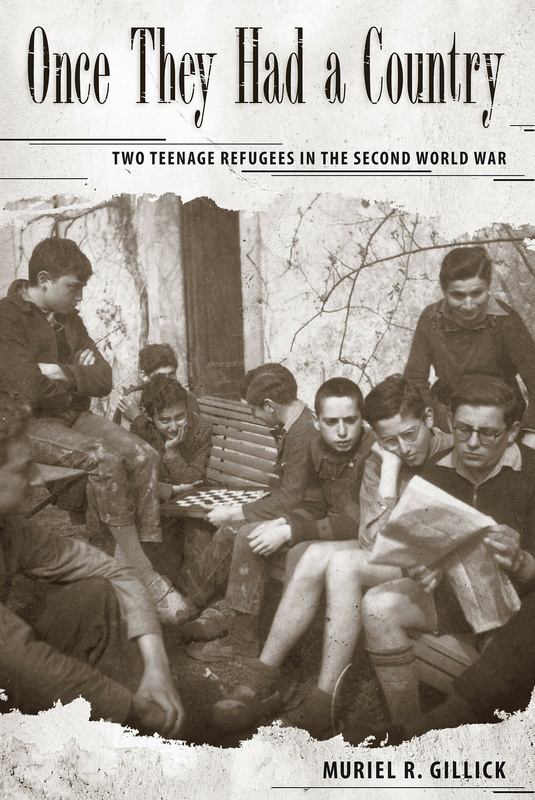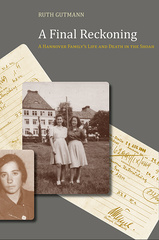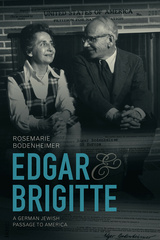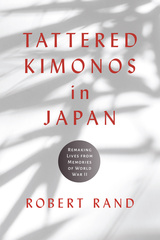Our shopping cart is currently down. To place an order, please contact our distributor, UTP Distribution, directly at utpbooks@utpress.utoronto.ca.
Once They Had a Country
Two Teenage Refugees in the Second World War
Muriel Gillick draws from a remarkable set of primary source materials, including letters, telegrams, and police records to relate the story of two teenage refugees during World War II. Once They Had a Country conveys well what it was like to establish a new life in a foreign country—over and over again and in constant fear for one’s life. The work tells of the extraordinary experiences of the author’s parents in Europe and demonstrates how citizens and the governments of Belgium, France, Switzerland, Brazil, America, China, and postwar Germany treated refugees. This story also reveals the origins of the Convention Relating to the Status of Refugees, the basis of contemporary international law affecting refugees in many countries today.
In addition to the dramatic human story it tells, this work brings the plight of refugees home to the reader—and with over 8 million refugees worldwide today, the subject of how individuals and nation states respond to these individuals is indeed timely.
‘Once They Had a Country is based on thoughtful research and scholarship, and attempts to speak to larger issues from the vantage point of an intimate family case study. The manuscript draws on letters and memories to provide to the reader a clear sense of the mounting danger that peaked for the protagonists. It makes clear that the international refugee regime that has come into existence since the 1950s, and which prevents refoulement of refugees with a well-founded fear of persecution to the places from which they came, was not in place during World War II.’ —Kenneth Waltzer, Director of Jewish Studies at Michigan State University
Gillick’s story is remarkable....Gillick has done prodigious research to amplify her parents’ experience and understand it in broader historical context. She gives a rich account of German-Jewish life in the Weimar and early Nazi period to situate the stories of her parents and their respective families. The personal saga of each protagonist in the story becomes the occasion for a deft historical account of the context of that saga....One might expect that a daughter writing her parents’ stories would skirt around difficult personal details or turn her protagonists into unblemished heroes. But Gillick is unflinching....Of course, not all children of survivors are able to strike such an objective stance in writing about their parents, but Gillick may well have profited from waiting so long to tell the story of hers. Gillick...represent[s] the passionate desire of writers born since the Shoah to try to enter into the experience and understand it, although with the awareness that what one has not experienced oneself can never be fully understood (and perhaps even those who did go through the Holocaust can never fully understand it, either). The tools of historical research — objective detachment and use of documentary sources — are what distinguish [this memoir] from those written by earlier authors telling their own stories. It is examples like [Gillick's] that make one optimistic about a Holocaust literature beyond the survivors.' --David Biale, professor of Jewish history at the University of California-Davis, and author of Not in the Heavens: The Tradition of Jewish Secular Thought, in The Forward
Th[is] book is stunning. For starters, of course, it is simply a terrific story, but what makes it a marvel is the way the author paces the account and weaves the various threads together to create a rich, contrapuntal texture. Time and again while reading Once They Had a Country I experienced the same delight I get from one of my favorite novelists, John le Carré. Besides meeting two intrepid, resourceful people whose fraught narratives were finally tied together at their marriage in Central Park in 1948, you will learn things you probably didn’t know (I certainly didn’t)—for example, about Shanghai's role in Jewish survival, about the curious politics of Brazil that had room for Jewish immigration. And you will appreciate, in a way you might not have before, the critical significance for civilization itself of the Convention Relating to the Status of Refugees, adopted by the UN General Assembly in 1951.’ --Patrick Henry, the former executive director of the Collegeville [Minnesota] Institute for Ecumenical and Cultural Research
Muriel R. Gillick, M.D., is Clinical Professor in the Department of Population Medicine at Harvard Medical School in Boston and author of several books, including The Denial of Aging: Perpetual Youth, Eternal Life, and Other Dangerous Fallacies.

